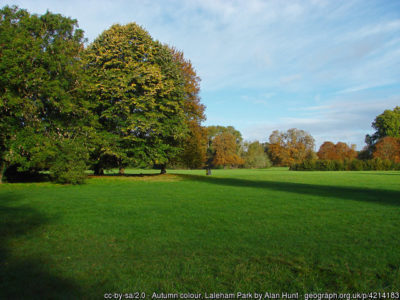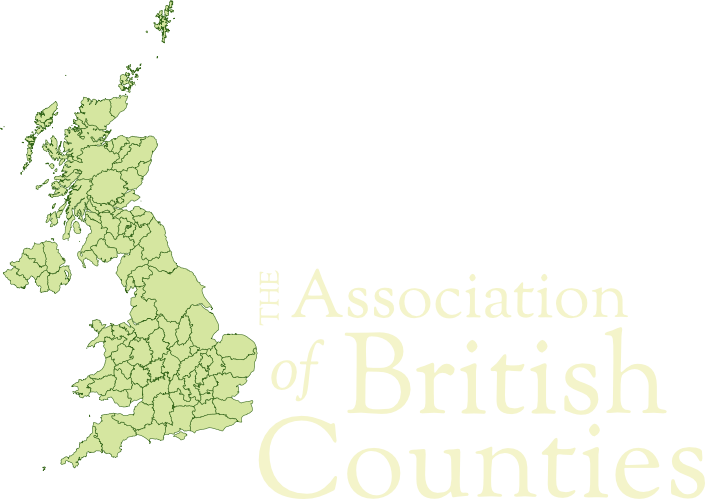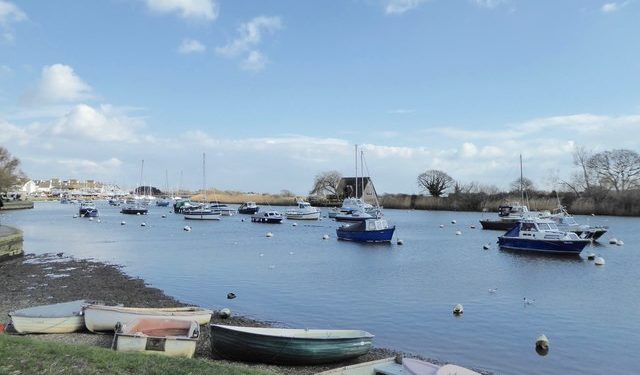ABC Chairman Peter Boyce argues that upcoming changes to local government in England continue the trend which will eventually clear-up the confusion in the public mind between local government and the historic counties – to the huge benefit of both.
The purpose of ABC is to maintain, enhance and promote the identities of the historic counties of the UK. We do this by encouraging public understanding and appreciation of the geography, history, natural history, architecture, culture and identity of the counties. We promote the counties as a basis for social, sporting and cultural activities. We advocate the geography of the counties as the basis for a standard general-purpose geography for the UK.
But we have a major challenge. Our historic counties have for many years now had their identities undermined by a widespread misconception in the media and among the general public that the counties have, in some way, been altered or abolished by local government changes. Until we can fully correct this misconception then we cannot build a long-term, sustainable future for our counties.
The root of the confusion stems from the birth of modern local government in 1889 and the creation of “administrative counties”, based initially on the historic counties but always understood to be separate entities from them. The term “county council” was also created at that time as a title for the new local authorities created to provide services in the new “administrative counties”.
From 1889 until the early 1960s there was a close alignment between local government and the historic counties. Since then, however, there have been numerous changes to the structures of local government and to the terminology used to describe its areas and authorities. Few modern local authorities now have an area anything like any historic county.
The challenge for ABC is that, although the link between local government and the historic counties has been irrevocably shattered, local government terminology and the names of many local government areas still do not reflect this fact:
- the word ‘county’ is still used as a term within local government terminology – though much less commonly than it was before the local government changes of the 1990s;
- some local authorities still take on the title “County Council” – most of them having an area nothing like any historic county;
- some local authorities still make unqualified use of an historic county name despite having an area radically different from the historic county whose name they borrow.
For example, the local authorities named “Somerset County Council”, “Warwickshire County Council”, “Staffordshire County Council” etc. actually provide services to a small fraction of the population of the historic counties whose names they borrow. Others (e.g. “Lancashire County Council”, “Surrey County Council”) administer sizeable areas which are in a different historic county altogether to the historic county whose name the authority has borrowed. Small wonder that the media and the public are totally confused.

Now, ABC absolutely does not seek to return to a situation where local government is closely aligned with the historic counties. Even if we could somehow magically turn the local government clock back to 1960, the unsustainability of that situation is evidenced by the last 60 years of local government change. The lesson is stark and clear. To link the identities and very existence of our historic counties to any form of public administration is to condemn the historic counties to oblivion.
Rather, we seek to totally separate the identities of the historic counties from any form of public administration. Consequently, we wish to see a set of local authority names and local government terminology which properly reflect the fact that local government is no longer anything to do with the historic counties. Specifically, we seek:
- An end to the inappropriate use of historic county names in administrative area names;
- An end to the use of the word “county” to describe any administrative area;
- An end to the use of the phrase “county council” to describe any local authority.
To be clear, ABC does not seek for any administrative area to be based on any historic county. However, by the same token, we have no problem if an administrative area is based on an historic county, or, as is more common, on a part of an historic county – provided that the administrative area is not portrayed as actually being the historic county itself. The distinction can easily be achieved by appropriate naming and terminology.
To clear the confusion between local government and the historic counties may seem like a tall order but in fact, compared to where things stood in 1990, we have already taken huge strides.
The continuing move towards unitary local government has seen a marked shift towards smaller local authorities which do not misuse historic county names and which do not style themselves “County Council”. Local government throughout all of Scotland, Wales and Northern Ireland and much of England is now provided via a unitary structure. There are still some dreadful exceptions (e.g. the unitary “Monmouthshire County Council” which covers only half of the historic county of Monmouthshire). However, by and large, the new unitary authorities have taken on names and titles which do not confuse or undermine historic county identities. Crucial to ABC’s aims, the spread of small unitary authorities also undermines the ability of the media to use local government as a basis for general purpose geography.
We should understand that further success is likely to be delivered gradually. There are no current plans for local government change in Scotland, Wales or Northern Ireland. But the UK Government is continuing to pursue a rolling approach to extending unitary local government in England. Those local government changes scheduled for 2019 and 2020 suggest that we have good reason to be confident that this approach will continue the trend for the gradual removal of “county” and “county council” from local government parlance.

In April 2019 the current “Dorset County Council” is to be abolished along with the two unitary councils “Poole Borough Council” and “Bournemouth Borough Council”. A new unitary “Dorset Council” will be formed from the current “Dorset County Council” area minus the area of the current “Christchurch District Council”. A new unitary authority called “Bournemouth, Christchurch and Poole Council” is to be formed from the areas of the two current unitary authorities and the “Christchurch District Council” area. These changes have several advantages for ABC.
- the word “county” is absent from the names of both of the new local authorities.
- the naming of “Bournemouth, Christchurch and Poole Council” in no way undermines historic county identities. This is especially important since this new authority lies partly in Hampshire and partly in Dorset.
- the naming of “Dorset Council”, whilst not ideal, is at least more appropriate than the name of the current “Dorset County Council”. At least the new “Dorset Council” will administer an area most of which is within the historic county of Dorset (albeit excluding Poole and Wambrook). It won’t include the current “Christchurch District Council” area, which is actually in the historic county of Hampshire. However, it will still include a small area of Hampshire around St. Leonards and two small areas of Somerset (around Oathill and Poyntington).

In April 2020 the existing “Northamptonshire County Council” and the seven district councils are to be replaced with two unitary authorities, “North Northamptonshire Council” and “West Northamptonshire Council”. ABC has no issues with these names. Again, the phrase “County Council” is not to be used. Peterborough is also a part of the historic county of Northamptonshire but will not form part of either of these new authorities. But this fact does not make these names inappropriate.
Also in April 2020, the existing “Buckinghamshire County Council” and the district councils in its area are to be replaced by a single unitary authority to be known as “Buckinghamshire Council”. This at least removes the word “County” from the authority title, though ABC is not in favour of the unqualified use of the historic county name for an authority which excludes a large part of the historic county around Milton Keynes and also excludes Slough.
There are many strands to ABC’s work: developing and promoting county flags; promoting county days; creating and promoting mapping and other geodata; erecting road-signs; establishing county groups. These are critical to our long-term success but can only succeed if pursued with relentless enthusiasm over many years.
But our long-term success will also require a complete separation in the public mind between the historic counties and administrative areas. The slow drift to unitary local government is, by and large, delivering much of what we want in relation to local government names and terminology. But, let’s be honest with ourselves, it may take some years yet to see this through to its logical conclusion.
ABC’s game is a long game – but one well worth playing.


10 thoughts on “Clearing the confusion between the counties and local government”
In addition to the confusion over counties caused by referring to Local Government Areas as “Administrative Counties”, there is similar confusion caused by referring to Lieutenancies as “Ceremonial Counties”. Whilst it is good that the problem regarding Local Government Areas is slowly diminishing, the confusion will never be ended unless the problem regarding Lieutenancies is also tackled. What steps are ABC intending to take to end the confusion over “counties” caused by Lieutenancies, please?
Totally agree with this. The article does say “To link the identities and very existence of our historic counties to any form of public administration is to condemn the historic counties to oblivion.”
This applies to lieutenancy areas as much as it does to local government areas. These areas should not be referred to as “counties” and they should not ape county names. The challenges and possible solutions to this problem will form the subject of a future article.
Sterling and passionate work by ABC.
One day (soon) hopefully,most people including our ignorant media,will realise the difference between admin areas and historic county boundaries.
Typical media reporting eg: Wigan in greater Manchester – sounds all so very wrong .
Nb: Manchester is still very much in Lancashire you know.
Mancs is Lancs!
Brilliant to have a lot of the confused cleared. One seeming omission may come from the people of Sussex, who seem to have their historic county irrevocally divided. It is impossible for example on online forms where an address is required to choose just Sussex. Can anything be done about this? It would seem appropriate to rename the a large authorities East Sussex and West Sussex Council(s).
Make a fuss until they let you choose just ‘Sussex’. It’s because of the old postal counties of ‘east Sussex’ and ‘West Sussex’ I suspect.
Another problem is the existence of ‘Ceremonial Counties’ which shouldn’t exist in my opinion, Lord Lieutenants of counties should cover the historic counties. The use of unitary authorities does not fix the problem of county confusion. My hometown of Widnes in Lancashire is administered by Halton Council, a unitary authority which covers parts of south Lancs and north Cheshire but the whole borough is counted as part the Ceremonial County of Cheshire which still makes folk believe that we are now in Cheshire and many more people use that county on their addresses than use Lancs. The same problem exists in other boroughs where they administer parts of more than one county e.g. Warrington (the town is in Lancs but the borough extends into part of Cheshire).
Agree totally with this. A subject I’ll cover in a future article. I would say though that the lieutenancy areas are certainly declining in their public visibility. They are not usually marked on maps or by road signs. The media tends not to use them. Wikipedia still gives them prominence mind.
The fact that a lot of police areas cover the same areas as lieutenancy areas actually probably gives more prominence in the media. Cheshire Police has far more prominence in Widnes that the Lord Lieutenant of Cheshire.
In Yorkshire we have a West Yorkshire Lord Lieutenant when of course we should have a WEst Riding one .
WE also need local government to be local and stop the relentless moves to bigger areas which never leads to any improvements.
What an unforgivable mess our so called “leaders” created in 1974.
As someone from East Yorkshire, who had the misfortune to be born in 1975 in “county” called Humberside, I hope and pray someone comes to power who will complete the job at putting things right that John Major half heartedly did for East Yorkshire in 1996. For me, until the police are renamed from “Humberside Police” and the Fire service and local BBC too, then some people will shockingly think that artificial county still exists.
The next step for Yorkshire must be putting the borders right and removing those parts currently governed by authorities in Lancashire, County Durham and “Cumbria” to the adjoining Yorkshire authority.
I do however think there is now some allegiance to South Yorkshire, so perhaps a South Yorkshire area would fit nicely within a reborn West Riding?